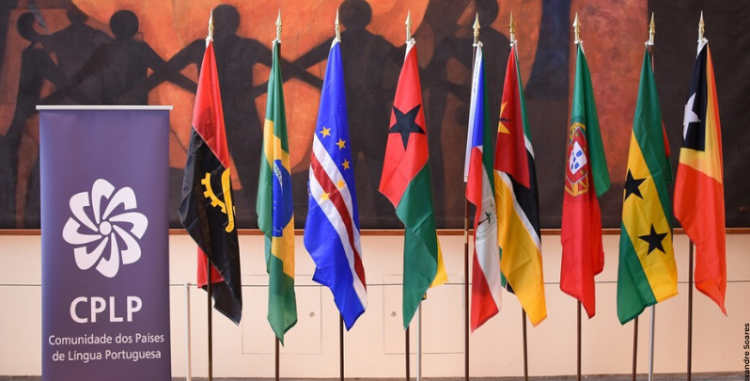"We had the usual agenda items, but a very special item, which had to do not only with sharing information on the aftermath of the pandemic in our countries, but also on the state of cooperation in this area," said Eurico Monteiro.
The Cape Verde diplomat, who holds the rotating presidency of the CPLP, spoke after the meeting of the organization's social consultation committee (CCP), a meeting that brings together the ambassadors of all member states.
This was the first meeting after the outbreak of the covid-19 pandemic, hence the disease was one of the main items on the agenda of the CCP, which did not stop with the exchange of information on the subject.
"We also tried to see if, taking advantage of all the accumulated experience, namely what happened in Mozambique with cyclone Idai, with a disastrous effect from an economic and social point of view, and this pandemic, we could think of more specific cooperation schemes and mechanisms for state emergency situations," Eurico Monteiro told Lusa.
The diplomat stressed that "cooperation should not only involve the sharing of technical information, "but also some political consultation, possibly even the constitution of an instrument of material or financial and logistical support, in emergency situations, whether due to natural disasters or pandemics, or others that may arise".
Also according to the representative of the Cape Verdean presidency of the CPLP, this was an issue addressed in the CCP "with some detail", and the meeting came out "the recommendation" that reflection should be continued and studies made to find, "in the short term, a proposed solution that should be submitted to the competent bodies of the CPLP and possibly even submit to the Council of Ministers for approval.
"We are looking for this and to see to what extent we can materialize, in the short term, a solution of this nature", he concluded.
As for the political situation in Guinea-Bissau, which the executive secretary of the CPLP had said on June 8, "is worrying" and would be examined at this meeting of the CCP was not even on the agenda, assured the Cape Verdean ambassador.
"The situation in Guinea-Bissau is worrying. We will soon have a meeting here in Lisbon, at ambassador level, where this matter will certainly be addressed," said Ambassador Francisco Ribeiro Telles, after receiving the credentials of Ambassador Isabel Amaral Guterres, as the permanent representative of Timor-Leste to the CPLP in Portugal.
The CPLP has been in Bissau "in a very active way" following the evolution of the situation in the country, he added.
Since the beginning of the year, Guinea-Bissau has experienced another period of political crisis, after Sissoco Embaló was awarded the election victory and was recognised by international partners as President, despite complaints of irregularities by Domingos Simões Pereira's candidacy at the Supreme Court of Justice.
After proclaiming himself President, Sissoco Embaló resigned the Government of the African Party for the Independence of Guinea and Cape Verde (PAIGC), led by Aristides Gomes, and appointed Nuno Nabian, leader of the United People's Assembly of Guinea-Bissau (APU-PDGB), to the post.
As part of the mediation of the political crisis in Guinea-Bissau, the Economic Community of West African States (ECOWAS) issued a statement in April in which it recognized Umaro Sissoco Embaló as President and urged the authorities to appoint a new government, which would respect the results of the 2019 legislation, within a period ending on 22 May.
Besides Timor-Leste and Guinea Bissau, Portugal, Angola, Mozambique, Brazil, Equatorial Guinea, São Tomé and Príncipe and Cape Verde are member states of the CPLP.
The covid-19 pandemic has already claimed almost 449,000 lives and infected more than 8.3 million people in 196 countries and territories, according to a report by the French agency AFP.







